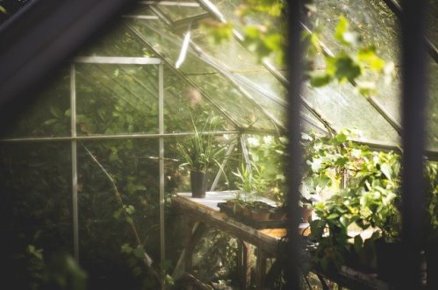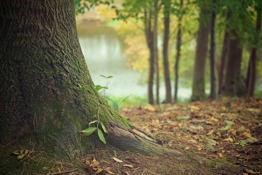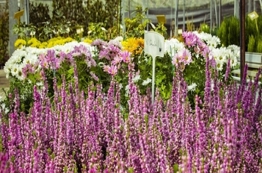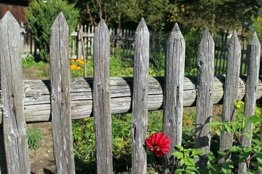Buying flowers and planters

Are flowers grown in the shemitah year sacred? Can we buy them during shemitah? On planters and flowers during the shemitah year. Chapter 23 of the Consumer's Guide to Shemitah.
For practical chart about different kinds of flowers, see here.
- The main focus of customers when buying flowers and ornamental plants during the shemitah year is if prohibited actions were performed with the plants, such as planting or sowing them in a forbidden fashion.
- One should not buy flowers from someone who cultivates them in a forbidden fashion (farmers or nurseries).[1] Flowers should be bought only from growers with certificates attesting that the flowers were either grown in a permitted fashion and under halachic supervision or through heter mechirah.
Optimally, one should also be careful when buying flowers from middlemen—such as flower shops—so as not to assist sinners.[2] - Most flowers on the market today (5782), do not have shemitah sanctity and are not considered sefichin since they are ornamental and not grown for their fragrance. For this reason it is perfectly permissible to use them and the prohibition of transaction[3] does not apply to them. However, the prohibition of melachah still applies (against sowing/planting, commercial harvest, and other activities meant to facilitate crop growth; see Chapter 1).
- Flowers grown for their fragrance: some maintain that they have shemitah sanctity,[4] which means that the prohibition of transaction would apply to them. However, it is possible to be lenient with the sefichin prohibition with such flowers (that is, to enjoy them even though they grew during shemitah—provided that they are obtained in a permitted fashion).[5]
- House plants growing in planters are usually not sacred nor are they considered sefichin.[6]
- When buying planters and plants for the home, as well as when buying plants for the garden in the year following shemitah, one should check that they were planted in a permitted fashion. For this reason, it is best to verify that the nurseries raise the plants in hothouses and on detached platforms, or that the land was sold to a non-Jew through heter mechirah.[7]
- Planters with fragrant plants grown for their fragrance, which were not grown on detached platforms or growing on land that was not sold to a non-Jew, are considered sacred and therefore it is forbidden to transact with them. However, it is permitted to buy them together with a non-sacred item[8] (provided that these plants were not sown during the shemitah year in a prohibited fashion; in this case, they should not be bought at all).
- It is permissible to transfer planters from place to place, even if they are perforated, and even when placed on the ground.[9] Some are stringent and move them only when set on a surface that detaches them from the ground or when they are wrapped in nylon, and the like.[10]
[1] Rambam 8:14, that it is prohibited to purchase various shemitah-related items from someone who is suspected of prohibited business dealings with shemitah produce. The Rambam includes even flax, which is not produced to be eaten. It seems that flowers would also be included in the "shemitah-related" category. See Katif Shevi'it 68, n. 10.
On the transaction prohibition, see Chapter 9 §A.4: it is forbidden to buy from such people since this puts up the salesman to the prohibition of doing business with shemitah produce, and it helps sinners.
[2] Flowers are considered shemitah-related items. For this reason, it is forbidden to purchase them from people who are suspected not to observe shemitah. See Shabbat Ha'aretz 8:14 §1.
[3] The transaction prohibition applies only to produce with shemitah sanctity: Rambam 6:1. Note that according to research by agronomist Yechiel Shteinmitz, the vast majority of flowers today (5782) are primarily meant for their decorative value, and not at all for fragrance. This means that these flowers do not have shemitah sanctity.
[4] See Chapter 4 §D a. For the stage of growth that determines the shemitah sanctity of these flowers, see Chapter 5 §D: for annual flowers, the determining stage is harvest, while perennial flowers, the determining stage is the appearance of the bud of the flower.
[5] The sefichin prohibition does not apply to anything that has shemitah sanctity. It is possible to be lenient since the sefichin prohibition only applies to edible food:
for example, a plant grown for animal fodder has shemitah sanctity, but is not subject to the sefichin prohibition. See Chapter 7§B,d.
[6] The sefichin prohibition does not apply to them since they are perennials. Neither do they have shemitah sanctity since they are not meant to be eaten or grown for their fragrance.
Rambam (1:12) writes that if one planted a tree during shemitah, whether intentionally or unintentionally, is fined by uprooting the tree. The Acharonim disagree whether the produce is permitted to eat or not (following orlah years). If one planted vegetables, the Acharonim disagree whether they should be uprooted or not (see Rambam 4:15). According to some opinions, non-fruit trees planted during shemitah should be uprooted. What follows is that it is improper to purchase saplings planted in a forbidden fashion during shemitah. See Shabbat Ha'aretz 1:12, n. 5. See Rabbi Ehud Ahituv, "Buying flowers and saplings and trees during the eighth year," Torah VeHa'aretz VIII (5768).
[8] This is called havla'ah, see above Chapter 9 §A.5. Optimally, one should purchase another plant devoid of shemitah sanctity and pay for both of them together. If needed, one can be lenient and tell the store owner that the payment is for the planter and the growing medium and not for the plant.
[9] This is the ruling of Rabbi S.Z. Auerbach, Minchat Shlomo §41:3; Mipri Ha'aretz I, p. 9, since it is obvious that there is no intention to work the land; this land is not designated for work, and is considered just like any non-agricultural act that are permitted, see Chapter 1 §F.1.
[10] Betzet Hashanah p. 48 §2,7 and n. 19–21. This is the ruling of Rabbi Mordechai Eliahu.




